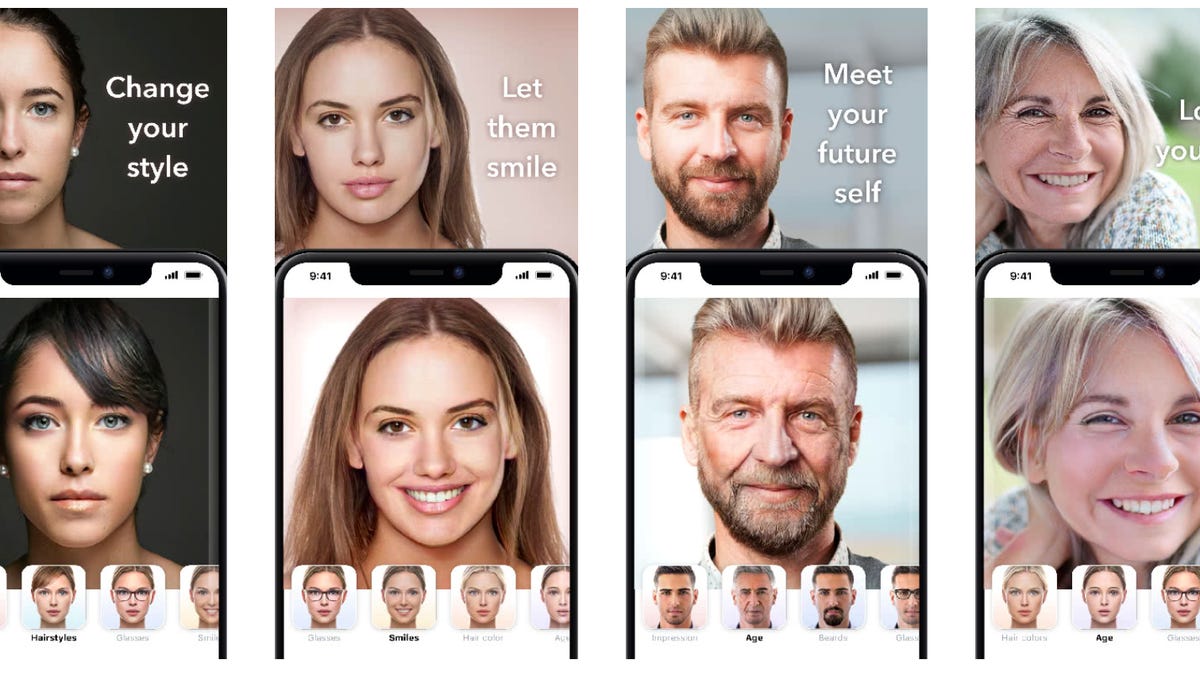The FaceApp #AgeChallenge is filling Twitter with pictures of old people
Curious to see what you might look like 50 years from now?

FaceApp lets you edit a person's face.
Looking for a fresh reminder that old age, and the cold specter of death, comes for us all? Might as well install FaceApp and take the #AgeChallenge.
The FaceApp #AgeChallenge, also tagged as the #FaceAppChallenge, involves using FaceApp to augment your own or someone else's face to look old. The app lets you pick a photo from your gallery and -- with the help of AI -- mercilessly edit it with one of its filters. You can add a new hairstyle, force someone to smile, and two years ago, change their skin tone. That feature was quickly removed.
FaceApp launched on iOS in January 2017, and hit Android in February of the same year. It's free, but has had its fair share of controversies. Firstly being accused of being racist, and secondly over privacy concerns.
But it does a great job of making you look old.
Twitter is filled with examples of the FaceApp #AgeChallenge. Chuckles and cringes aside, eventually you might pause again. As you stare at a beautiful celebrity now etched in wrinkles, you might find yourself reflecting on the terrifying brevity of life. Fun!
Let's go on this rollercoaster together.
Here's that slightly different take on the challenge with Aniston and Pop.
#FaceApp is indeed amazing. pic.twitter.com/nNOVfdY0Q0
— Joe Negan (@mynameisNegan) July 17, 2019
And here's young and old Tom Holland.
I’m sorry @TomHolland1996, I love you 3000!! #FaceApp #faceappchallenge pic.twitter.com/h1II6MDlDu
— Your Fool (@tiredbuthyped) July 17, 2019
What do you reflect on when a robot does the challenge best?
Me in the year 3019 #FaceApp pic.twitter.com/dtl9ps75Jm
— Sophia the Robot (@RealSophiaRobot) July 16, 2019
Old Captain America is still worthy.
With 'Thor 4' on the schedule, someone get Old Cap a shield 🤣#FaceApp pic.twitter.com/tVwoulTYsh
— Fandom (@getFANDOM) July 16, 2019
Somehow Supergirl looks even more wholesome.
Our Arrowverse Heroes in 2050. (3000 for Kara) #FaceApp pic.twitter.com/1LA7aUypjf
— The Arrowverse Post (@ArrowversePost) July 16, 2019
This is probably the most cringe-inducing.
Harry Potter and the #FaceApp Challenge pic.twitter.com/jVyKhhSks7
— Professor Snape (@_Snape_) July 16, 2019
Thank you for this, Gordon.
Me hosting #MasterChef Season 50......#faceapp pic.twitter.com/uKnfxUpC1D
— Gordon Ramsay (@GordonRamsay) July 16, 2019
We end on a more hopeful note.
Just used the #FaceApp aging software on Paul Rudd. 😳 pic.twitter.com/oSYWVKU3Or
— Diane N. Sevenay (@Diane_7A) July 17, 2019

